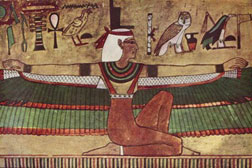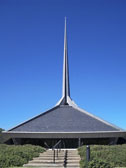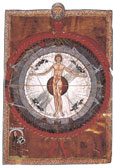
Humanities
HUMN 7
 |
 |
 |
Global Religions-Contemporary Practices & Perspectives
From Lao Tzu’s Tao Te Ching and Plato’s “Allegory of the Cave,” to Teresa De Avila, and Thich Naht Hanh, the spiritual and the beautiful and the ethical, and the political have intersected through all humanity’s quest for meaning.
Religion is a controversial subject, and it embraces every societal and human concern from the love of solitude and ethics, to sex, and sensuality. In our course we will explore many of these ideas. Through the human artistic expressions of the most controversial ideas, artists, and thinkers, we will explore the ultimate question regarding our purpose and what it is to be human in the twenty first century world.
This interdisciplinary course explores how religions shapes our understanding of diverse topics such as human rights, war, peace, globalization and science as well as music, sport, humor, film, and the visual arts.
The course is different from a traditional religious studies course in that it does NOT focus on a specific tradition (i.e. Western or Eastern religions) but instead examines the inter-relationship between religion and the creation of meaning through the lenses of ethics, aesthetics, and politics.
Class discussions, projects, reading selections, arts, and presentations will encourage you to consider religion and ethics through different genres, media, and aesthetic viewpoints.
Course Objectives
- Engage in critical, creative, and independent thinking.
- Stimulate curiosity about the intersection of religion and culture.
- Broaden perspectives on how religious thought influences topics such as human rights, war, peace, globalization, etc.
- Apply critical approaches to the analysis of various modes of cultural production in relation to various religious practices and understanding.
- Explain the relationship between religion, art and social organization in both Western and non-Western contexts.
- Use diverse religious practices and cultural traditions as a framework for a more complex understanding of the contemporary world.
- Analyze cultural production as both instruments of social control and ideological change.
- Develop the habit of learning and responding to new ideas and challenges.
- Think through moral and ethical problems and to examine one’s own assumptions.
- Improve both oral and written communication, especially through critical reading and analysis.

